Campus Sustainability News
News on campus sustainability initiatives, emerging programs, rankings, awards, student initiatives, green teams, and more from across the Cornell University campus.

Cornell is teaming up with climate justice leaders to build sustainability efforts across the University community, reviving its commitment to the environment in light of the pandemic and worldwide movements for racial and social equality. In collaboration with the New York Coalition for Sustainability in Higher Education and Ithaca College, Cornell hosted the 2020 State of New York Sustainability Conference in December, featuring well-known figures in the science community, including Bill Nye ’77, Sen. Rachel May (D-N.Y.) and marine biologist and conservation expert Dr. Ayana Elizabeth Johnson.
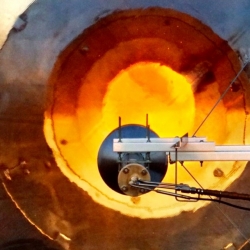
Dimensional Energy – a Cornell McGovern Center startup company that can capture industrial carbon dioxide and then convert it by way of sunshine into an environmentally friendly products like aviation fuel – has emerged as one of two finalists in the $20 million Carbon X Prize competition.
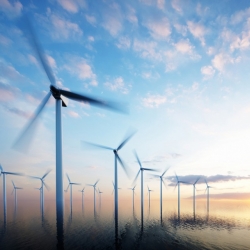
Cornell wind energy scientists have released a new global wind atlas – a digital compendium filled with documented extreme wind speeds for all parts of the world – to help engineers select the turbines in any given region and accelerate the development of sustainable energy. This wind atlas is the first publicly available, uniform and geospatially explicit (datasets tied to locations) description of extreme wind speeds, according to the research, “A Global Assessment of Extreme Wind Speeds For Wind Energy Applications,” published Jan. 25 in Nature Energy.
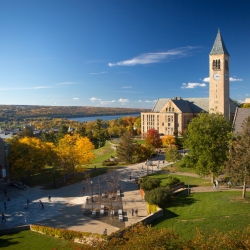
By delving into scientific, technological, environmental and economic data, Cornell Engineering researchers have examined whether New York could achieve a statewide carbon-free economy by 2050.
Their finding: Yes, New York can reach this goal – and do it with five years to spare.

At a virtual community forum Jan. 19, a Cornell faculty and staff panel outlined the next steps for testing Earth Source Heat (ESH), the process by which water would be extracted from the Earth’s crust, its heat transferred to a separate supply of water flowing within Cornell’s heating distribution pipeline to heat most of the Ithaca campus buildings, and the original geothermal water returned to the subsurface
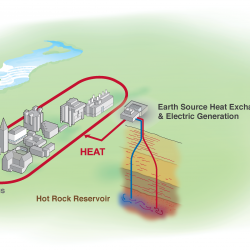
If Cornell can demonstrate it's feasibility and really make some headway with this enhanced geothermal system, it could be put into use in many parts of the Appalachians, and potentially in similar locales around the world.

Cornell University will host a virtual community forum on Tuesday, January 19 from 6 to 7 p.m. to provide an update on the enhanced geothermal heating project which is central to the Climate Action Plan.
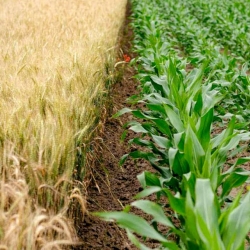
An important tactic for slowing climate change is for private companies to reduce their greenhouse gas emissions, but knowing exactly how much they’re emitting can be a challenge. To address this need, researchers in the College of Agriculture and Life Sciences (CALS) have developed an online greenhouse gas (GHG) emissions accounting tool, FAST-GHG, to help quantify these emissions in crop production.

Sarah Brylinsky, who works in the Campus Sustainability Office, said she sees the current pandemic as a time where innovation for sustainability can thrive and make Cornell a model for other universities. “[I am] confident that Cornellians … are destined to help us create a future in which our choices as a society are overall better across each of sustainability’s areas of focus — including learning from the current global challenges to help inform a new future,” Brylinsky said.
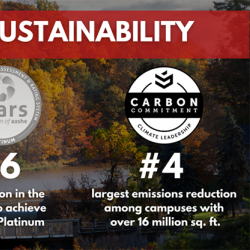
The University swept top spots in national sustainability rankings for the 2020 year after being recognized as one of the most sustainable higher education institutions by the Sierra Club, Princeton Review, AASHE's Sustainability Tracking, Assessment & Rating System, and the Carbon Commitment run by Second Nature.
